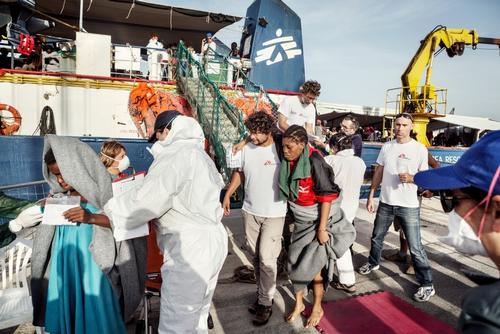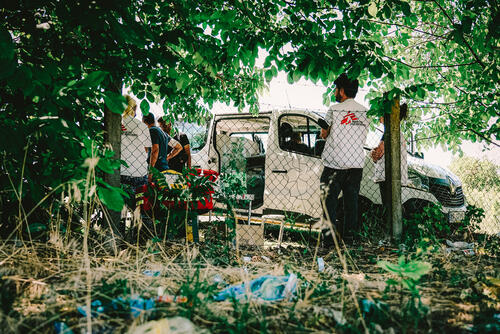In Serbia, we provide general medical consultations and essential items, such as blankets and hygiene kits, to migrants and refugees in Belgrade, and to people on the move in border areas.
Our activities in 2023 in Serbia
Data and information from the International Activity Report 2023.
23
23
€0.9 M
0.9M
1991
1991
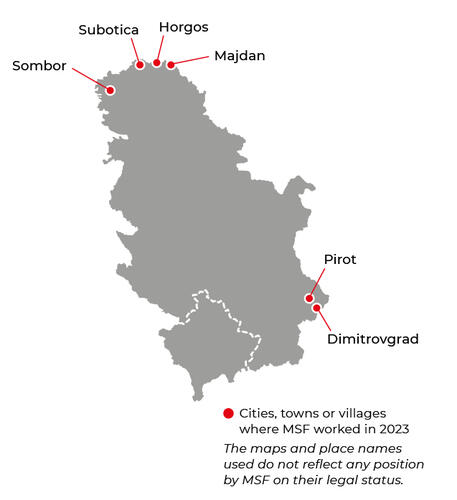

19,700
19,7
320
32
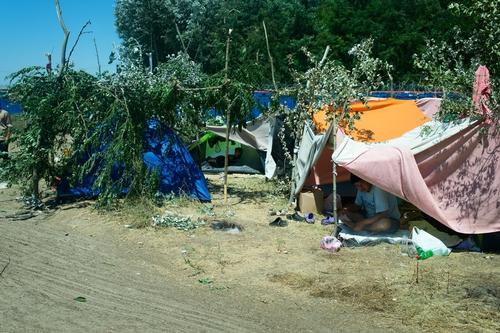
Sharp increase in violence against migrants since border closures in the Balkans
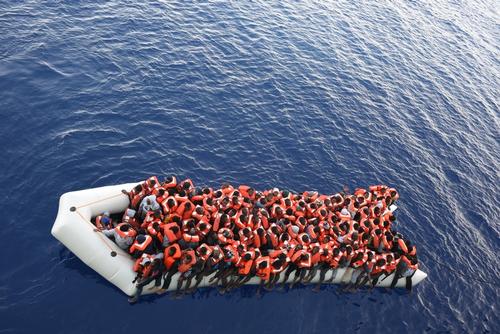
EU Migration Crisis Update - June 2016
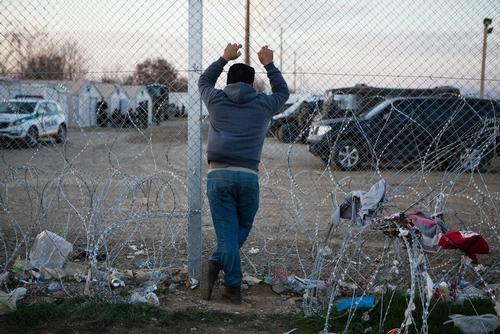
Trapped at Europe's borders
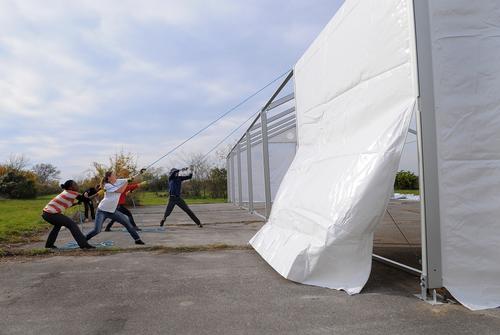
EU Migration Crisis Update - February 2016
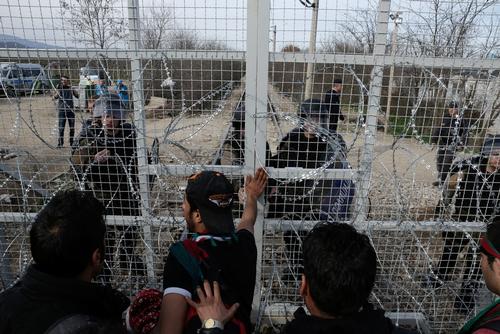
Thousands stranded as new arbitrary border restrictions expose refugees to violence
